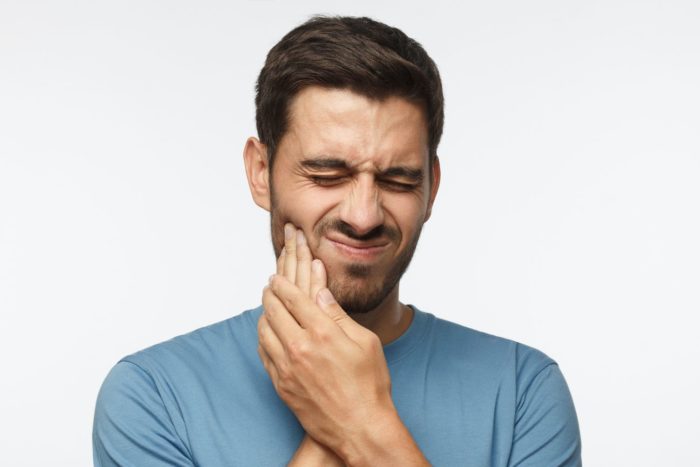The temporomandibular joint (TMJ) is the joint responsible for moving and hinging your jaw. It connects your jawbone to your skull with the help of your facial muscles, ligaments, and tendons. Like other joints in your body, your jaw can feel pain, discomfort, and other issues associated with overuse or deformities.
Issues involving your TMJ are called temporomandibular joint disorders or TMD. TMD can affect different people in a variety of ways. Symptoms may include pain, popping and clicking, difficulty opening and closing your mouth, or even locking in place. There are also numerous factors that can cause TMD, so it is generally difficult to determine just one single cause.
Anything from stress to genetics can cause TMD. Pay attention to your body and try to treat the symptoms as best you can. Most cases of TMD are treated with mild anti-inflammatory medications or gentle non-surgical therapies. It is only in severe cases with failed therapeutic measures that you may need surgery.

The Oral Health and Overall Wellbeing Connection
It may be hard to imagine or understand, but every part of your body is connected in some way. When you have issues in one area, you may have problems arise in another. Studies have shown that the same plaque that builds up in your teeth and causes gingivitis or gum disease is the same plaque that can build up in your heart and cause heart problems.
Many of your organ systems and muscle groups are all working together in some way. This is why an issue with your temporomandibular joint can affect parts of your body beyond your teeth or jaw.
What Can TMD Cause?
The typical symptoms of TMD include pain or discomfort in the jaw and face. You may fear or feel popping and clicking in your jaw joint, and you are more likely to experience headaches because of the tension in your muscles caused by TMD. Outside of the most common symptoms, TMD can cause a variety of different issues throughout your body.
TMD can increase tension in the muscles of your face and neck, which can ripple throughout your body. It is not uncommon for TMD to cause tightness in your neck and shoulders. This tightness can affect your posture and possibly your flexibility.
Once one muscle group begins to tighten, it can move to other areas in your body without proper stretching and care. It can cause tenderness in the neck and shoulders that may affect your sleep patterns or ability to completely relax.
If the muscles in your face and neck are tense, it can cause dizziness. TMD can cause earaches because it affects tiny muscles in your ears too. If these muscles are out of balance, it can make you dizzy or even make you nauseated.
Along with muscle issues, TMD can cause your teeth to wear prematurely because your jaw is placing more tension on your teeth. An increase in tension can eventually lead to chipped or cracked teeth, which will put you at risk for tooth decay.
